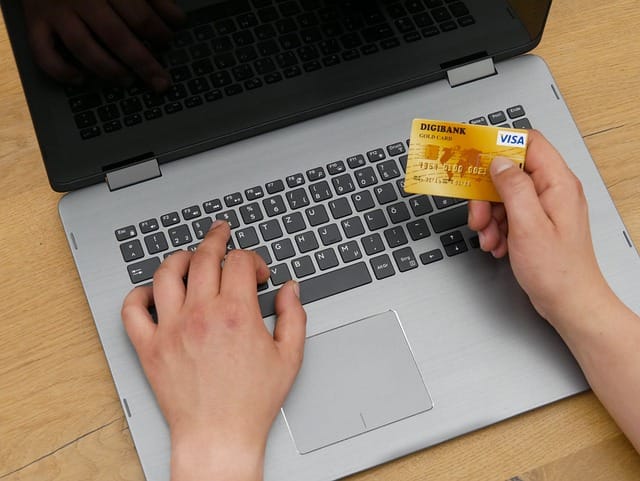Advice On And Options For Declaring Personal Bankruptcy

Filing for bankruptcy is never a bad thing. Use the tips in this article that follows as a way to learn how you can avoid bankruptcy.
Don’t use credit card to pay off your taxes before filing for bankruptcy. In a lot of places, this debt won’t be discharged, and in the end you will be left owing the IRS a big sum of money. This makes using a credit care irrelevant, when it will just be discharged.
You might find it difficult to obtain an unsecured credit after filing for bankruptcy. If this happens, then try applying for a coupe of secured cards. This will allow you are making a good credit history while minimizing the bank’s risk. After a while, you might be offered an unsecured card once again.
It is important that you increase your knowledge on personal bankruptcy by reviewing websites that provide reliable information. The United States Department of Justice, NACBA, and American Bankruptcy Institute websites are all great places to go for up-to-date information. The more information you have, the more confident you can be about any decision you make and you will know that you are doing the best thing possible for your situation.
The professional that helps you choose to file for bankruptcy has to have a complete and bad aspects of your financial condition.
Before you decide to declare bankruptcy, ensure that all other options have been considered. If your debts are really not overwhelming, you can join a counseling program or straighten your finances out by yourself. You may have luck negotiating lower payments by dealing directly with creditors, but make sure that you get written records of any debt modifications to which you agree.
Be certain you talk to the lawyer, not their paralegal or law clerk, instead of a paralegal or assistant; those people aren’t allowed to give legal advice.
You should avoid paying your taxes with credit cards and then immediately file for bankruptcy. Most states do not look at this debt as chargeable, and you could end up owing money to the IRS. If the tax has the ability to be eliminated, the debt can be too. This means using a credit card is not necessary, when it will just be discharged.
Be sure that bankruptcy truly is your best option. You might be better off consolidating your debt may be simpler. It is not a quick and easy process of filing for personal bankruptcy. It will also harm your ability to secure credit in the future. This is why you explore your other debt relief options first.
It is possible to get an auto loan or mortgage during the repayment period for Chapter 13 case remains active.You must meet with a trustee to gain approval for any new loan. You will need to show them why and how you will be able to afford your new loan payments. You will also have to prepare yourself to explain the reasons you need to have a good reason why you need the item.
It is possible for those going through the bankruptcy process to feel unworthy, remorse and embarrassment.These feelings can cause you and provide no value.
Once you file for bankruptcy, you will have a hard time getting loans or credits. This being the case, look at secured card options. They offer you the chance to demonstrate the seriousness with which you now take your financial obligations. When you have done well with secured cards for a while, you should be able to obtain an unsecured credit card.
Bankruptcy can cause anxiety and a difficult time that always leads to lots of stress.To avoid getting too stressed, hire a good lawyer. Don’t make your choice to retain a particular lawyer simply because they are the sole factor in who you hire. It is not be necessary to engage the lawyer who charges the highest fees; all you need is a costly attorney; just make sure he or she is qualified to handle your case. Make sure people who have experienced bankruptcy give your circle of friends and the BBB. You could even attend a court hearing and observe lawyers handling their cases.
Do not wait until things go from bad to worse before filing for bankruptcy.It is a big mistake to avoid financial problems, hoping they will go away on their own. It is easy you to lose control of your debt, and not taking care of it could eventually lead to wage garnishment or foreclosure. Once you’ve decided that you can’t manage your large amount of debt, your best bet is to speak with a bankruptcy attorney and find out what he or she recommends.
Make a list of all your bankruptcy petition. Forgetting anything can cause a delay, or even dismissed. This may include secondary employments, vehicles and loans.
If you know people who have filed for bankruptcy, ask them who they would recommend rather than relying on Internet reviews or worse, just randomly picking someone out of the phone book. There are lots of unsavory companies and lawyers out there who prey on people who are in desperate straits. It is up to you to find someone that is trustworthy and can make the process go smoothly.
Consider any other options before filing for personal bankruptcy. Credit counseling is an important option for you. There are some good non-profit organizations that you can use. They can speak with your creditor about getting your payments and interest. You make payments to them and they pay your creditors through them.
This is fraud, and even after bankruptcy you can be forced to pay all of that money back to the credit card company.
Be cautious if you pay off any of your debts before you file for bankruptcy.The laws surrounding bankruptcy often prohibit paying back certain creditors up to ninety days prior to filing, and friends and family for up to one year. Read the rules before you make any decisions about your finances.
You should never give up. Filing a bankruptcy petition might facilitate the return of your property, including cards, electronics or other items that may have been repossessed. If it has been fewer than 90 days since you filed for bankruptcy, it is possible for you to get repossessed property back. Speak to a lawyer who will be able to help you file the necessary paperwork.
It is not uncommon for people to declare that they will never again use credit again. This may not a great idea because credit cards help in building good credit. If you do not rebuild your credit rating, then it will be very difficult to get your credit score high enough to be able to purchase things like a car or home in the future.
Write down everything that you have. This will be the basis for your bankruptcy filing, so be certain to include every debt you know about. Be 100% certain that the exact amount of each debt you are claiming as being owed are true and correct. Don’t hurry through this process too fast because these amounts won’t get discharged if the numbers aren’t right.
As you have learned, bankruptcy can be avoided. The tips here can help provide you with some guidance to avoid filing bankruptcy. Put this advice to work in your life so that you can avoid damaging your credit rating.
Weigh all of your options before declaring bankruptcy. For example, consumer credit counseling services can often help you figure out a workable repayment plan with creditors. You should also try negotiating a payment plan with your creditors; make sure you get a written agreement of the new payment plans.


